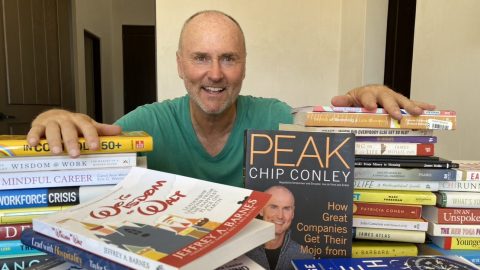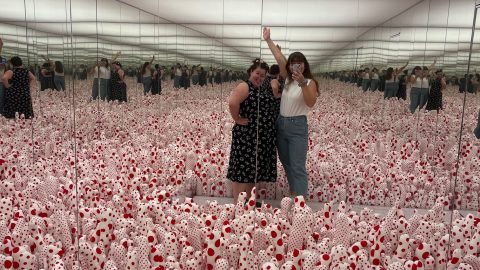“I seem to be a verb”—Buckminster Fuller
My beef with nouns:
a) they are, at best, approximations—attempts to create clear boundaries for identities that are inherently fuzzy
b) As they mutate over time, they accumulate archaic baggage, outdated meanings that continue to shade our perceptions and
Or see this great post exploring the increasingly fuzzy boundaries of the noun “book.”
What triggered this rant? The frequency with which I hear variations on the statement “museum’s don’t do…” or “we don’t do that because we are a museum.” This rigid self-image is the institutional equivalent of the Buddhist concept of the fallacy of “I.” We lock into stories about ourselves that we tell over and over again, instead of embracing the fluid and ever changing nature of our identity. We, and museums, too often let our behavior be determined by internal image of who we are, rather that by external needs and opportunities.
One of core purposes of futures studies is to shake up our assumptions about the world, about ourselves. In CFM forecasting workshops we prod people to question the assumptions they have about museums. When asked to list things they “absolutely know to be true about museums” some of the things museumers commonly list are:
- Museums own collections
- Museums are nonprofits
- Museums are educational
- Museums are respected by the public
…
Part two of the exercise consists of listing the exact opposite of these assumptions:
- Museums do not own collections
- Museums are not nonprofits
- Museums are not educational
- Museums are not respected by the public
The challenge is to imagine what could result in the insertion of that “not.” What forces would create a future in which museums do not own collections, and what would that look like? What trends or events would result in museums losing nonprofit status? I’ve yet to encounter an assumption for which a group of creative museum folk can’t create a plausible story of how it could be flipped on its head.
Some of these thought exercises are cautionary and instructive—once we imagine what events might lead to the loss of tax exempt status, how can we make sure that doesn’t happen? Some are liberating, shaking up our thinking of what museums are, or are not, loosening the constrains of our designate noun, giving us license to simply do what needs to be done—and then figuring out what the resulting thing is going to be called.









Ulysses Grant agreed with you. At the end of his like, and in great pain, he remarked:
"The fact is I think I am a verb instead of a personal pronoun. A verb is anything that signifies to be; to do; or to suffer. I signify all three."
The link to the "book" post does not seem to be working.